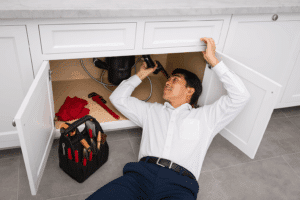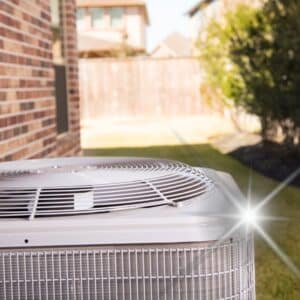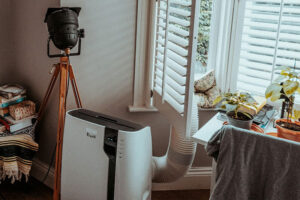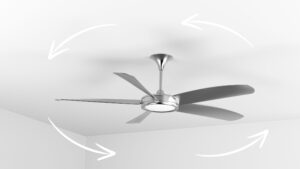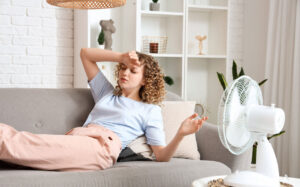How Often to Change Air Filters for Optimal HVAC Performance

Whether you rent or own your home, you need to know how often to change air filters. It is very important to keep your HVAC system running efficiently and maintain good indoor air quality. Regularly changing your air filters is often stipulated in the lease agreement if you are a renter, and the frequency depends on the type of filter you use. Here’s a detailed guide to help you understand the different types of air filters and how often they should be replaced.
Types of Air Filters and Replacement Frequency
Basic Fiberglass Filters
Description: Basic fiberglass filters are the most economical option available. These filters are designed to capture larger particles like dust, lint, and pet hair, making them effective for basic filtration needs. However, they are less effective at capturing smaller particles such as pollen, mold spores, and bacteria.
Replacement Frequency: Due to their limited capacity to trap smaller particles and their tendency to clog quickly, basic fiberglass filters should be replaced monthly. Regular replacement ensures that your HVAC system operates efficiently and maintains good indoor air quality.
Pleated Filters
Description: Pleated filters are a step up from basic fiberglass filters. They are made from polyester or cotton paper and have a larger surface area due to their pleated design. This design allows them to capture smaller particles more effectively, including dust mites, mold spores, and pet dander. Pleated filters offer a good balance between cost and performance, making them a popular choice for many homeowners.
Replacement Frequency: Pleated filters can last up to three months before needing replacement. However, the replacement frequency can vary depending on factors such as the presence of pets, allergies, or high levels of dust and pollutants in your home.
High-End HEPA Filters
Description: High Efficiency Particulate Air (HEPA) filters are the gold standard for air filtration. Designed to capture 99.97% of particles as small as 0.3 microns, HEPA filters are highly effective at trapping allergens, bacteria, and viruses. They are particularly beneficial for homes with allergy sufferers or those needing superior air quality.
Replacement Frequency: HEPA filters can last up to a year, depending on the specific model and usage. Despite their higher cost, the extended replacement interval and superior filtration capabilities make HEPA filters a worthwhile investment for maintaining exceptional indoor air quality.

Consequences of Not Changing Air Filters
Neglecting to change your air filters regularly can lead to several serious consequences that affect both the efficiency of your HVAC system and the quality of your indoor air. Here’s a detailed look at what can happen if you don’t change your air filters frequently enough.
Increased Energy Consumption
Imagine running a marathon while breathing through a straw. That’s what your HVAC system experiences with a clogged air filter. Restricted airflow forces the system to work much harder to push air through the home. This increased effort leads to higher energy consumption. According to the U.S. Department of Energy, replacing a dirty, clogged filter with a clean one can lower your air conditioner’s energy consumption by 5% to 15%. Skipping filter changes for six months might result in a 20% spike in your energy bills, a hefty price for negligence.
System Overheating
Picture your car’s engine overheating because of blocked radiators. Similarly, restricted airflow causes the HVAC system’s blower motor and heat exchanger to overheat. When these components struggle to maintain the desired temperature, they generate excess heat, risking damage and eventual failure. In severe cases, safety switches can trip, shutting down the system to prevent further damage. This can mean an inconvenient and potentially costly repair.
Freezing of the System
On a sweltering day, the last thing you want is for your AC to quit. But that’s exactly what can happen with restricted airflow. When not enough warm air reaches the evaporator coil, it can freeze, forming a block of ice that further restricts airflow and compromises cooling efficiency. Left unchecked, this issue can lead to a total system shutdown.
Take the case of a resident in Alpharetta who noticed their AC was not cooling effectively. They discovered ice forming on the unit as a result of neglected air filters. After a quick intervention from Aaron Services, including filter replacement and defrosting the evaporator coil, the system was back to its efficient self.
Poor Indoor Air Quality
For those with allergies, dirty air filters can exacerbate symptoms significantly. Allergens such as pollen, dust mites, and pet dander accumulate quickly in clogged filters, reducing their ability to capture these particles. Consequently, these allergens recirculate in your home, leading to increased sneezing, coughing, and respiratory issues.
Consider a family in Roswell who struggled with persistent allergies. They saw a remarkable improvement in their symptoms after adopting a regular air filter replacement schedule. Clean filters effectively trapped allergens, providing a noticeable difference in indoor air quality. For more on maintaining indoor air quality, visit the EPA’s guide on indoor air quality.
Impact on Homes with Pets
Homes with pets face an additional challenge. Pet hair and dander can quickly clog air filters, reducing their efficiency. Regularly replacing filters is crucial in such homes to ensure good airflow and air quality. Clogged filters can lead to a buildup of pet odors and an increase in airborne particles that can affect both human and pet health.
A pet owner in Decatur noticed their HVAC system wasn’t performing well and the indoor air quality seemed poor. Upon inspection, the technician from Aaron Services found that the air filters were heavily clogged with pet hair and dander. After replacing the filters and setting up a more frequent replacement schedule, the air quality improved, and the system’s performance returned to normal.
Increased Wear and Tear
A system that has to work harder due to restricted airflow experiences increased wear and tear. Examples of this wear and tear include:
- Blower Motor Stress: The blower motor has to run longer and at higher speeds, which can cause it to overheat and eventually fail.
- Heat Exchanger Cracks: Overheating can cause the heat exchanger to expand and contract excessively, leading to cracks and potential carbon monoxide leaks.
- Compressor Damage: In air conditioning units, the compressor may have to work harder to cool the home, leading to premature failure.
- Fan Belt Wear: Increased operation can cause the fan belts to wear out faster, leading to breakdowns and the need for replacements.
Regular maintenance and timely replacement of air filters can significantly reduce the risk of these issues. For example, a commercial building in downtown Atlanta faced frequent HVAC repairs until they implemented a regular maintenance schedule that included monthly air filter replacements. This not only reduced the frequency of repairs but also extended the lifespan of their HVAC system.
Tips for Buying Replacement Air Filters
Here are some tips to help you make the best air filter choice:
1. Check the Size
Why It Matters: An incorrectly sized filter can lead to poor performance and even damage your system. Sizes are usually printed on the side of the existing filter or in your system’s manual.
2. Know the MERV Rating
Why It Matters: The Minimum Efficiency Reporting Value (MERV) rating indicates how effectively a filter traps particles. Higher MERV ratings mean better filtration but can also restrict airflow if your system isn’t designed for them. Choose a filter with a MERV rating that balances filtration and airflow for your specific system needs.
3. Consider Your Needs
Why It Matters: If you have allergies, pets, or respiratory issues, opt for filters with higher efficiency, such as HEPA filters. These are designed to capture more and smaller particles, improving air quality. For basic filtration, pleated filters offer a good balance between cost and performance.
4. Buy in Bulk
Why It Matters: Purchasing filters in bulk and setting up automatic shipments can save you money and act as a reminder to change your filter regularly. It’s convenient and ensures you always have a replacement on hand, reducing the risk of running your system with a dirty filter.
FAQ: Air Filter Maintenance

Is it Okay to Clean Your Air Filters Rather Than Replace Them?
Washable vs. Disposable Filters:
Washable Filters: These filters are specifically designed to be cleaned and reused. To clean a washable filter, follow the manufacturer’s instructions carefully. Typically, this involves rinsing the filter with water and allowing it to dry completely before reinserting it into your HVAC system. Proper maintenance of washable filters can extend their lifespan and maintain their efficiency.
Disposable Filters: These are intended for single use and should not be cleaned. Attempting to wash disposable filters can damage them, reducing their effectiveness and potentially causing them to fall apart. It’s important to replace disposable filters as recommended to maintain optimal air quality and system performance.
Risks of Cleaning Disposable Filters:
Damage and Ineffectiveness: Disposable filters are not built to withstand cleaning. Exposure to water and cleaning can degrade their materials, making them ineffective at trapping particles.
Health Hazards: Attempting to clean disposable filters can release trapped contaminants back into the air, posing health risks.
System Efficiency: Using damaged or improperly cleaned filters can restrict airflow, leading to increased energy consumption and wear on your HVAC system.
By regularly replacing your disposable filters and properly maintaining washable ones, you can ensure your HVAC system operates efficiently and maintains good indoor air quality.
For more tips and expert advice, contact Aaron Services: Plumbing, Heating, Cooling, and let our professionals help you maintain a healthy and efficient home environment. Schedule a service with us today!





